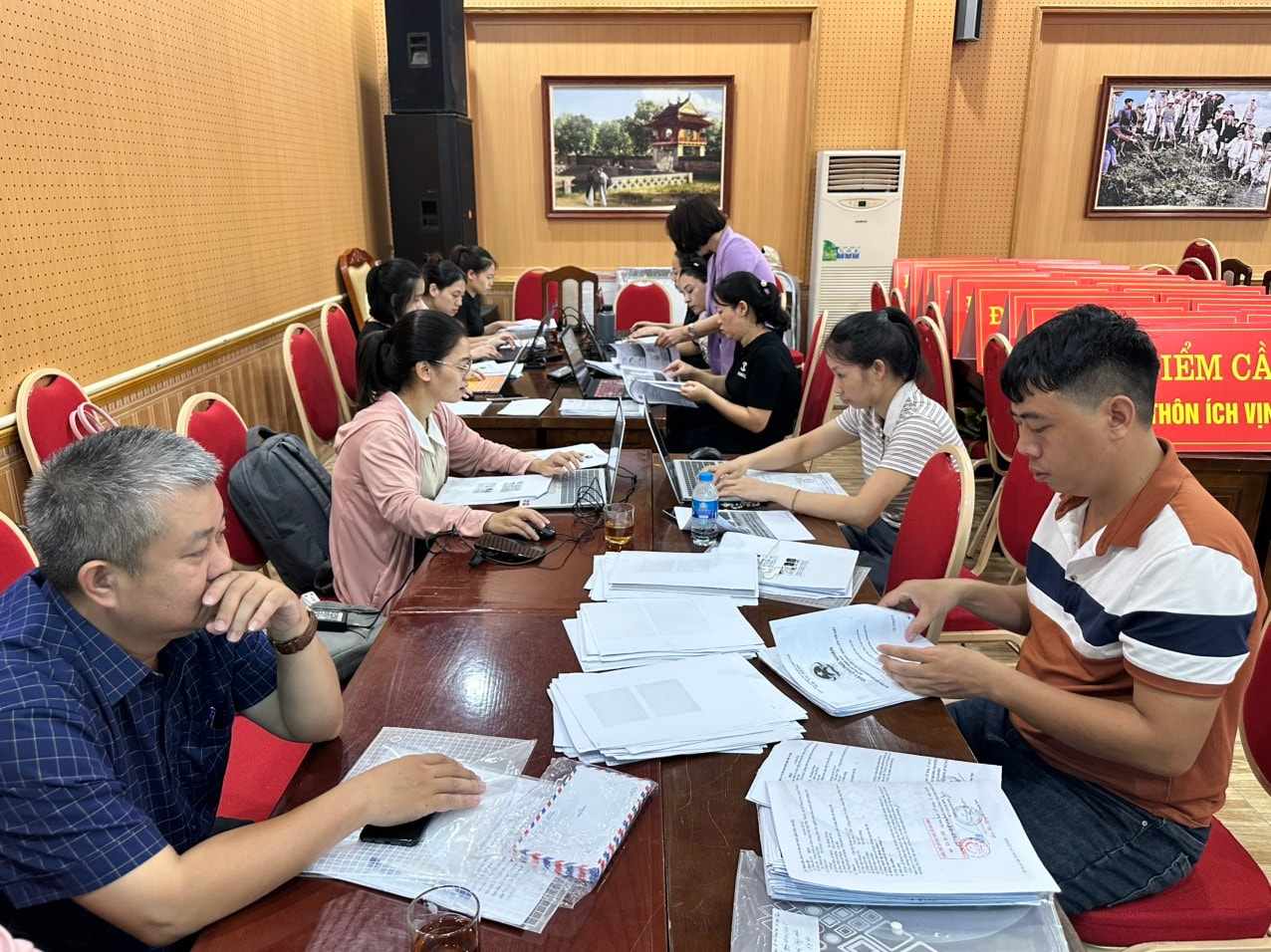The 9-day campaign "enriching and cleaning the national land database" is a general review and standardization of land data nationwide, taking place over 90 days from September to November 2025. The goal is to ensure "correct - complete - clean - live" land information, synchronously connecting with the population database, helping to manage transparently and serve people better.
In Hanoi, this campaign is being urgently deployed to "reach the finish line". Thanh Xuan Ward People's Committee said that it had urgently taken action. The ward officials have deployed it to each household, ensuring that by November 15, the tasks assigned by the city will be basically completed.
According to Vice Chairman of Thanh Xuan Ward People's Committee Nguyen Hong Quan, the Ward People's Committee has established working groups including heads of residential groups, local police and forces in residential areas.
The teams go to each house, check each household, collect, scan or take photos of documents and combine propaganda and analysis to help people clearly understand the meaning of data cleaning.
After more than a month of implementation, the ward has completed about 50% of the work. The ward focuses on collecting in residential areas, land-based houses and old collectives, especially commercial apartments that already have data on the city system, so there is no need to collect it again.
Most of the people cooperated well, in some cases, the landlord did not live in the locality and the ward staff had to contact them for further information. "During the process, if we clearly explain the purpose, rights and responsibilities of the people, most people will support it," Mr. Quan shared.
In Nam Phu commune, the "90 days of cleaning up land data" campaign took place in an urgent and drastic atmosphere. The locality has identified the motto of action as "Excision - Quick - Effective - For the people to serve", considering this an opportunity to improve the efficiency of state management and improve the quality of service to the people.
Since the beginning of October, the commune has issued a detailed plan, established a Steering Committee, 18 working groups in 18 villages, organized training for cadres and launched an emulation movement in the entire political system. After only 10 days of launching, the commune has collected more than 8,500 records, entered data on about 2,400 cases, reaching nearly 60% of the workload - a result that is assessed as positive in the initial stage.
Mr. Nguyen Trung Kien - Deputy Head of the Economic Department of Nam Phu commune, said that due to complicated land records, many households have transferred, separated plots, and even mortgaged to banks, collecting and importing materials is difficult. Officials must check many rounds before entering official data to ensure absolute accuracy.
Notably, Nam Phu applies flexible methods, creating maximum conditions for people. The locality does not require notarization when submitting a photocopy of the land use right certificate or citizen identification card; people living far away can take photos and send them via Zalo to the working group. Thanks to that, the collection of documents is quick, saving time, costs and reducing pressure on grassroots staff.


In Dai Thanh commune, as of October 14, the whole commune has collected 15,504 cases of granting certificates and citizen identification cards. Of which, 12,502 cases had information data entered into the form (not yet compared with information on land plots, map sheets between CT 299/TTg measurement maps, 1994 measurement maps and Comprehensive Measurement Maps) - reaching a rate of 80.64%. The Working Groups are continuing to visit each household to mobilize and collect records of cases of late payment.
To ensure the completion of the plan, Mr. Nguyen Van Hung - Deputy Secretary of the Party Committee, Chairman of the People's Committee of Dai Thanh commune suggested that the working groups continue to "go to every alley, knock on every door, check every subject", combined with extensive propaganda so that people clearly understand the benefits of declaring and updating land information.
Regarding the collection of certificates and citizen identification cards, the Working Groups were on duty at the village cultural house to collect at each household.
However, in many cases, people do not take photos of their certificates and citizen identification cards in advance, but only allow them to take photos. Therefore, the Working Group spent more time synthesizing, printing, classifying and handing over to the data entry team.
The campaign to enrich and clean up the land database in Dai Thanh commune is not only an administrative task but also an important step in the process of digital transformation and modernization of land management.
When data is standardized and transparent, people will be better protected in terms of land use rights, while the government will have effective management tools, contributing to building a civilized, developed and sustainable Dai Thanh commune.








